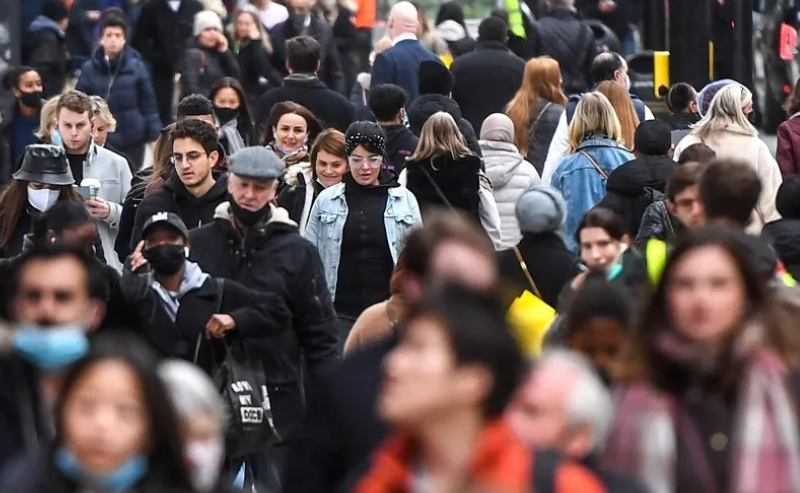The Office for National Statistics (ONS) has reported a new record high in net migration to the UK, reaching 745,000 in the year to December 2022. This figure marks a substantial increase from the previous estimate of 606,000 for the same period, with the ONS revising the data to account for “unexpected patterns” in migrants’ behavior.
The provisional figures for the year to June 2023 show that net migration to the UK stood at 672,000, up from 607,000 in the preceding 12 months. This surge is attributed to 1.2 million migrants being granted visas, primarily from outside the EU, for purposes such as studying, working, or seeking refuge from conflict or oppression. The ONS estimates that 508,000 people emigrated during this period.
The latest net migration figure for the year ending June 2023 is nearly three times the pre-Brexit average of 200,000 to 250,000 per year, challenging the government’s 2019 manifesto pledge to reduce overall net migration from its then level of 226,000.
The data is expected to heighten pressure on Chancellor Rishi Sunak to implement significant measures aimed at reducing the number of visas granted to workers and their dependents entering the UK. Proposals under consideration include potentially restricting health and care workers from bringing in dependents or limiting them to one per visa. There is also contemplation of raising the minimum salary threshold for foreign workers to qualify for a work visa from £26,200 to over £30,000 and eliminating pay discounts for foreign staff in shortage occupations.
These revelations follow the Office for Budget Responsibility’s (OBR) recent warning to Prime Minister Boris Johnson that his policies are unlikely to bring net migration back to pre-pandemic levels before 2027. The OBR anticipates an additional 150,000 migrants arriving in the next five years, with 410,000 net migration leading up to the upcoming election year. The projected impact of immigration could add an estimated 1.5 million people to the UK’s population by 2028-29. As the debate on immigration policy intensifies, the government faces the challenge of balancing economic and labor market needs with public concerns and political promises.








